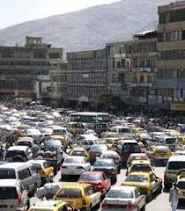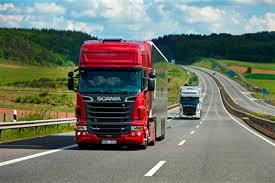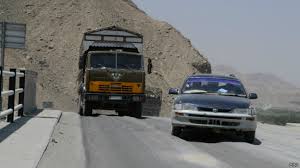Afghanistan’s problems in the use of transport and transportation of the World Road Organization

Due to its geographic location as a landlocked country and being at the intersection of historical trade routes, Afghanistan has potential opportunities to use the World Road Association and other international transportation organizations. But using these opportunities faces many challenges. Some of the key problems that Afghanistan faces in taking advantage of international transport opportunities are:
-
Political insecurity and instability: Years of war and internal conflicts have caused damage to the country’s transportation infrastructure, and insecurity has prevented the development of road and transportation networks. As a result, many road routes are unsafe, making international trade and transit difficult.
-
Weak transportation infrastructure: Afghanistan’s road system is in dire need of repair and development. Many roads have been damaged due to war and lack of investment and need to be reconstructed and upgraded. In addition, large parts of the country do not have access to adequate transport networks, which prevents the full exploitation of international transport opportunities.
-
Lack of financial resources and investment: The development of transportation infrastructure requires large investments. Due to economic problems, international sanctions and the reduction of foreign aid after the Taliban came to power, Afghanistan has limited financial capacity to develop and maintain transportation networks.

-
Transit limitations: As a landlocked country, Afghanistan depends on the transit routes of neighboring countries. Restrictions and political challenges with some neighboring countries, such as Pakistan and Iran, can affect Afghanistan’s access to ports and trade routes.
-
Lack of management and technical capacities: To optimize the use of international transportation opportunities, Afghanistan needs sufficient management and technical skills. The lack of education and experience in the transport sector has made it unable to effectively participate in regional and global projects.
-
Customs and Bureaucracy Problems: The customs and administrative system in Afghanistan is complex and inefficient. This delays the transit of goods and increases trade costs, which limits international transport opportunities.
-
Lack of effective interaction with international organizations: Limited interaction with international transportation organizations such as the World Road Organization and other similar institutions due to sanctions and political restrictions has caused Afghanistan to not fully benefit from the benefits of these collaborations.
-
Environmental problems: Climate changes, floods and droughts can also destroy transportation infrastructure and create more challenges for the development of roads and transportation routes.

Solutions:
To take better advantage of international transportation opportunities, Afghanistan should rebuild and develop its infrastructure, improve security and political stability, and effectively interact with neighboring countries and international organizations. Increased investments and effective management can help the country exploit its geographic location as a transit hub.